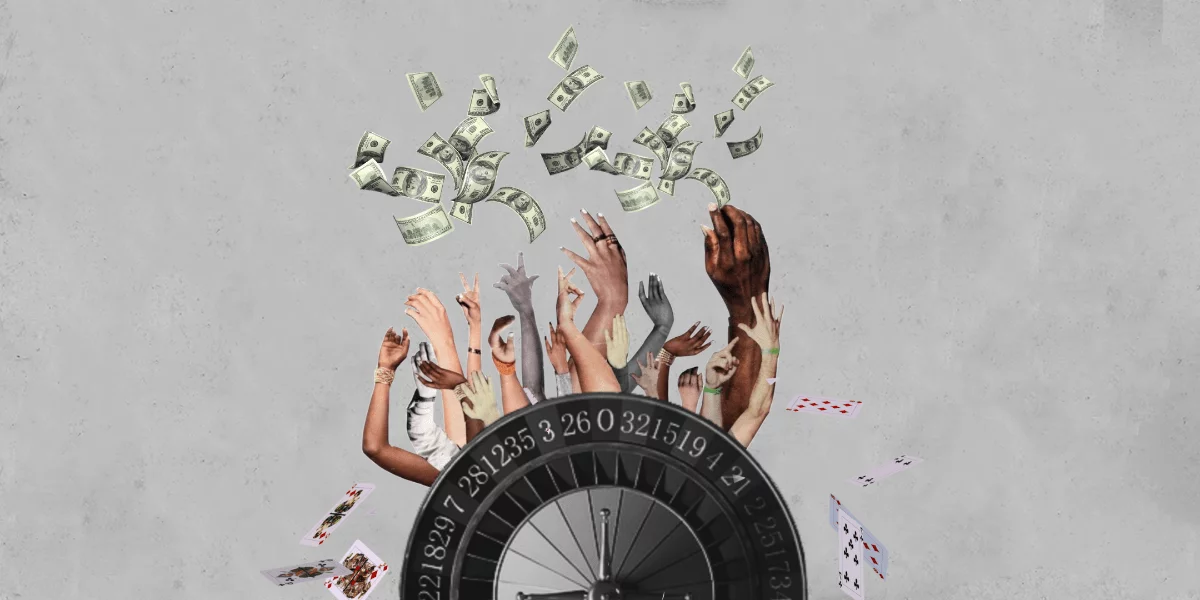
Gambling and betting are two of the most extensive major international commercial activities. Betting on casino slots, poker, and other related card games is called gambling. According to the Oxford dictionary, betting is the action of gambling money on the outcome of a race, game, or other unpredictable events. Recent technological advancements in IT have allowed gambling and betting firms to establish themselves in the gaming sphere. They have undergone massive improvements in terms of expanding ways of reaching and involving players in Armenia. As these firms develop, they positively affect the economy of Armenia in terms of money circulation and revenue; but are the economic benefits of gambling worth the negative impact on the health and on the financial situation of the population?
Betting companies have a substantially positive influence on Armenia’s economic growth. According to Prime Minister Nikol Pashinyan, “during the year 2021, money circulation in the gambling field in Armenia amounted to 3 trillion 300 billion AMD (6.5 billion US dollars), which is double the amount of the government’s yearly budget.”
To put it into perspective, money circulation in the US gambling field in 2021 was 13.6 billion dollars. Moreover, the company providing the software and platforms for betting companies paid more than 8 million Armenian Drams of taxes to the government for 2021, according to The Tax Service of the Republic of Armenia. The numbers show that betting and gambling companies play a significant role in the economy of Armenia. With more than 40000 daily active players, these firms continue operating and generating immense profits for the government budget.
Gambling and betting firms spend millions of drams on advertising their websites, on buses, metro stations, ad banners, Internet, and radio ads. During an interview with Azatutyun, one player stated, “It is ruthless for a country like Armenia to allow gambling and betting companies to exist and remind of themselves on each step.” Although the government approved a list of restrictions for advertising gambling, these restrictions are not implemented, as the number of players is still rising.
Gambling causes psychological and emotional disorders among players; new players are at higher risk of acquiring some dangerous habits. A study by Sean Cowlishaw and David Kessler from the University of Bristol in the UK showed that “at-risk gamblers were more likely to report hazardous or harmful alcohol use and smoking, as well as anxiety disorders and certain neurotic symptoms.” In addition, the consequences of gambling can lead to feelings of helplessness. As a result, around 25 percent of problem gamblers in the UK reported suicide attempts assumingly caused by the losses from gambling and debt. The National Center for Addiction Treatment in Armenia constantly receives patients with severe psychological issues caused by gambling. Some patients reopen their betting websites accounts after deciding to quit finally. Some patients who were unable to pay for their losses were terribly beaten by fit bodyguards sent from betting offices and were warned and given a deadline to pay for their losses. Their options become either committing suicide or emigrating to avoid further problems. Considering the current discouraging situation in Armenia, the government still does not take serious steps toward eliminating gambling.
Moreover, gamblers face a financial crisis, which causes more problems. People view gambling as an easy means of earning money, while gambling venues have mathematical advantages over players. Sooner or later, players lose their money because of the mechanisms gambling businesses have created. By letting players win the first few times, firms motivate players to earn more. Players bet more for more income; meanwhile, the company covers its losses by making the player lose a few big bets. The rest of the loss is programmed based on the actions of players.
Gambling leads to difficulties not only in terms of personal financial losses but also in terms of productivity losses and welfare costs. The statistics from Armenia show how terrible the situation is; In 2021, Armenian gamblers lost 140 million US dollars. After losing all their money, the majority become bankrupt and end up in poverty. For a country with 26.4 percent of the population living below the national poverty line, betting and gambling are two of the biggest threats to the well-being and growth of Armenian society.
Alex Sargsyan, a European University of Armenia student, says he makes bets almost every week depending on football matches. When asked why he places bets, Alex responds, “Because I like football, and by betting, I check my strengths in predicting how the game is going to go.” The highest amount he bet has been 1000 AMD for the Barcelona versus Real Madrid game. Otherwise, he usually bets not more than 100 AMD.
“I’m aware of the dangers betting and gambling have, but I have been doing this for the past five years and I haven’t bet more than 100 drams,” says Alex. He mentions that it isn’t about the money but more about the satisfaction he gets after winning.
Armenian authorities and administrative departments had decided to mitigate the negative effects. The most contemporary way to reach customers is through outdoor and online advertisements. After many years they finally approved laws and regulations and introduced mechanisms to reduce the number of gamblers in the population. The parliament approved the project of changes in the “Law about advertisements” on June 3, 2019. They decided to reduce the banner size of outside advertisements. In addition, they clarified where those advertisements can be put, how visible they should be and when they should be shown in the media. However, the law does not restrict all types of outdoor and online advertisements of gambling companies. The solution is to ban all kinds of advertisements related to gambling and betting anywhere and anytime.
Economic benefits from gambling in Armenia are not worth the destructive consequences for the population’s psychology and financial situation. Immense money circulation in the gambling field ensures the country’s economic growth and solves some financial issues for the government. The deadly side effects of gambling, such as psychological, emotional, and financial issues, create more problems for the government and a higher risk of suicides and emigration for the population of Armenia. New laws and regulations must be implemented by the government that would ban all types of gambling ads. The government must take this issue seriously and take action to ensure the safety and well-being of its people.













